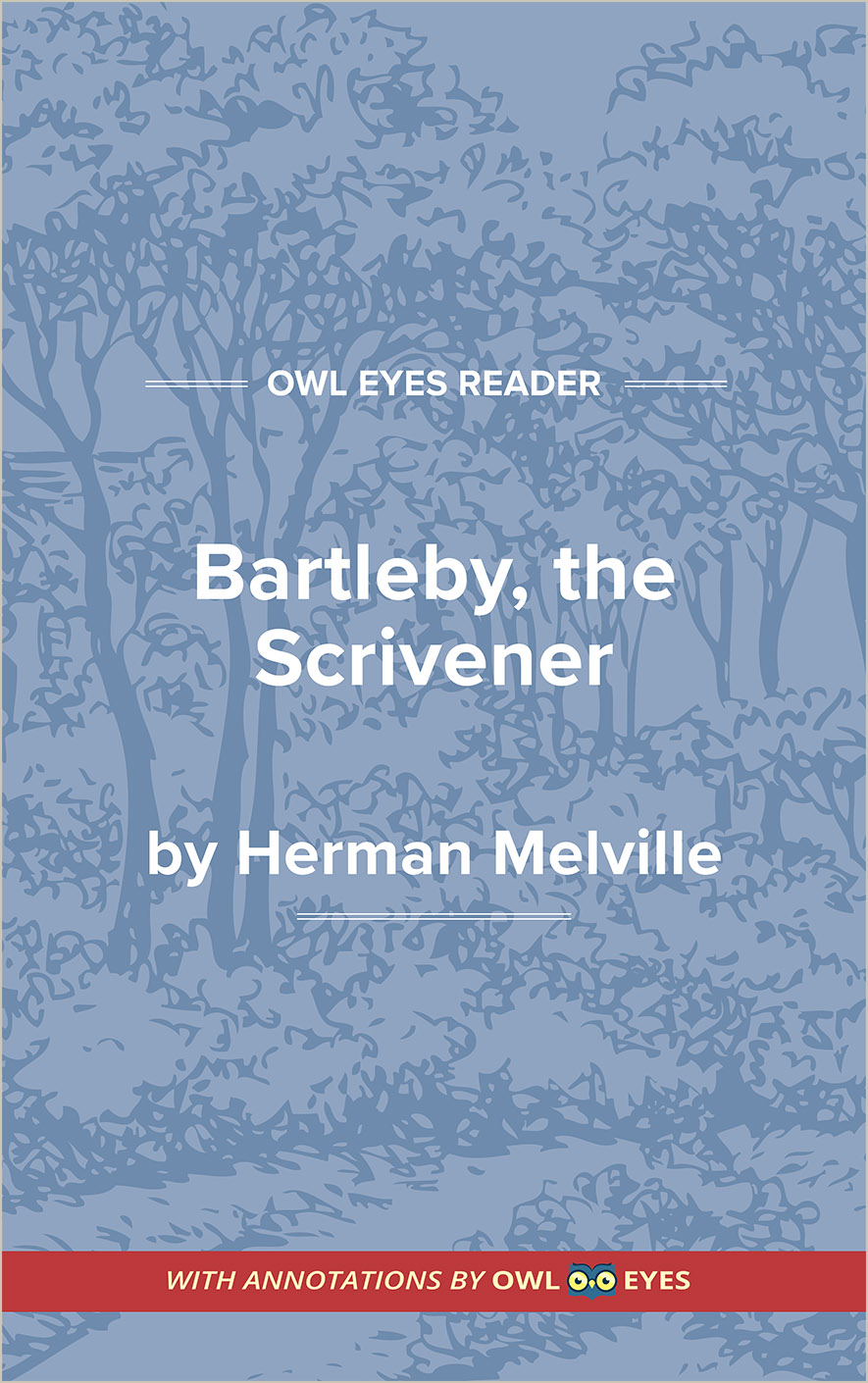- Annotated Full Text
- Literary Period: Romanticism
- Publication Date: 1853
- Flesch-Kincaid Level: 9
- Approx. Reading Time: 1 hour and 12 minutes
Bartleby, the Scrivener: A Story of Wall Street
Herman Melville wrote “Bartleby, the Scrivener: A Story of Wall Street” in 1853, shortly after the publication of Moby-Dick. The story of Bartleby is simple but deeply perplexing. A lawyer who runs a small firm on Wall Street in Manhattan hires a new copyist, a quiet man named Bartleby. Despite his strange, silent demeanor, Bartleby is an efficient worker. Soon, however, Bartleby begins to turn down his tasks, uttering in refrain “I would prefer not to.” As the lawyer struggles to reason with his employee, Bartleby becomes increasingly detached from reality, withering away for lack of food. The story is famous for the way it presents both the reader and the lawyer with more mysteries than answers. Bartleby’s abstention from work, sustenance, and life has been interpreted in numerous ways. To some, it is an adept portrait of clinical depression; to others, it is a parable of class conflict, set against the early boom of the American banking system. At times it is read as an autobiographical reflection of Melville’s struggles with writer’s block and existential angst, particularly after the initial commercial failure of Moby-Dick. At other times it is seen as an exploration of philosophical topics such as free will and ethics. This vast range of readings is a testament to the power of Melville’s chilling and mysterious tale.
- Annotated Full Text
- Literary Period: Romanticism
- Publication Date: 1853
- Flesch-Kincaid Level: 9
- Approx. Reading Time: 1 hour and 12 minutes

